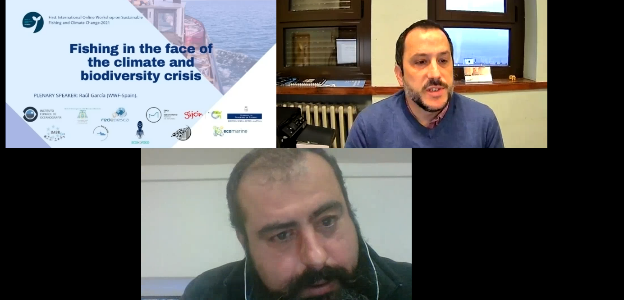
Enlace: http://www.unioviedo.es/mcm/wp-content/uploads/2021/11/Final-Program-Workshop.pdf
Participaron más de 40 investigadores y estudiantes de España y Europa que trabajan en la temática. Las charlas invitadas estuvieron a cargo de Raúl García (WWF-Spain) y Alberto Martín (MSC-Spain/Portugal). ECOS(i)FOOD presentó varios trabajos científicos en este evento:
- Is the stalked barnacles fishery in Asturias sustainable? Results from a field experiment. K. Geiger et al.
- Analysis of ocle (Gelidium corneum) extraction along the Asturian coast and its influence on the sustainability of the resource. J. Higgins et al.
- Revising ecolabels using genetic tools: the common octopus (O. vulgaris) case study in the southern area of the Bay of Biscay. N. Pirhadi et al.
- Spatio-temporal genetic heterogeneity in the highly valued P. pollicipes: implications for sustainable fisheries management. M. Parrondo et al.
- Economic approach to sustainability branding: the case of octopussy catches by asturian western fishermen. J. Alba & I. Vega.
- Childhood education preservice teachers knowledge and perceptions on sustainable fisheries and seafood. A. Torralba.
- High levels of substitutions in the commercialization of the appreciated variegated scallop in northern Spain. Implications for sustainability. M. Parrondo et al.
- Genetic studies using mitochondrial DNA for the sustainable octopus fishery in northern Spain. A. Romero et al.
- Education for Sustainable Consumption: needs and game-based learning activities on marine fisheries in Primary education. A. Torralba et al.



